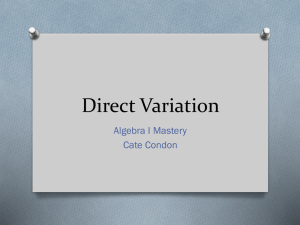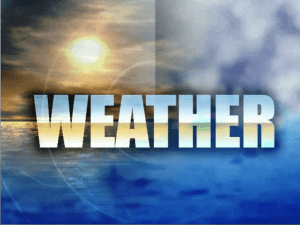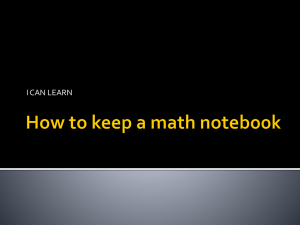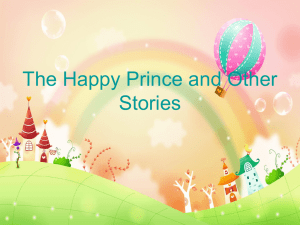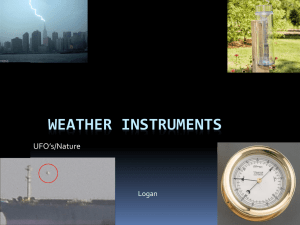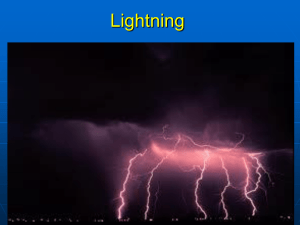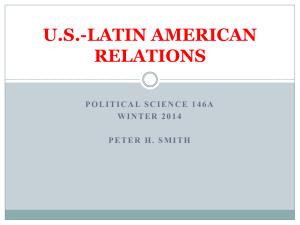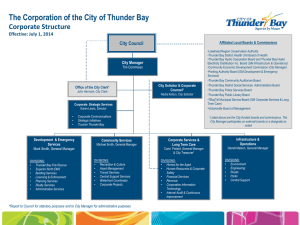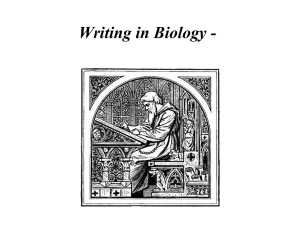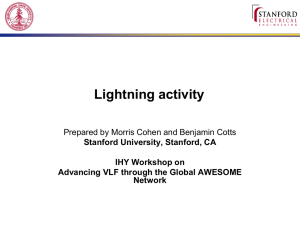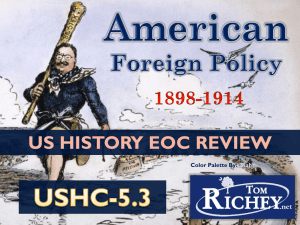Classroom Daily Powerpoint
advertisement
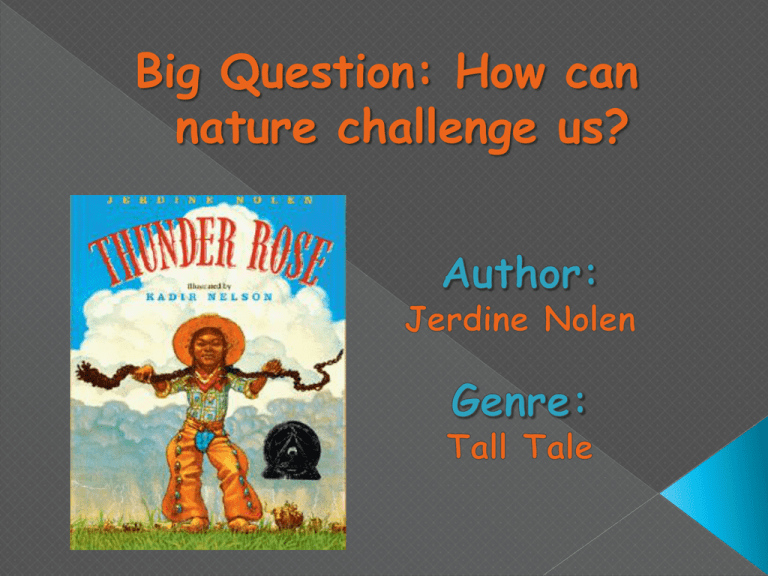
Big Question: How can nature challenge us? I can explain cause and effect relationships by identifying key details as evidenced by a score of 75% or higher on my Fresh Read. I can compare and contrast two genres of writing by creating a Double Bubble Map with at least 2 similarities and 2 differences. I can summarize my reading by writing a $2.00 summary in my Reading Notebook. Drama “Puss in Boots” (Your posse!) Summarize your reading (Reading Notebook) Compare Genres (Drama and Notebook) Pretest “The Cricket and the Mountain Lion” (Practice Sheet) Read the drama with your group. After you have finished OR when the timer goes off, write a $2.00 summary of the drama in your notebook. Each word you use will be worth 10 cents. › How many words can you use in your summary? Work with your group to write summary. You will share summary tomorrow. Chavez will number you 1-4. Your number will tell the roles you will read (listed on the board) Groups less than 4 will divide the remaining roles. FAIRY TALES (“Puss in Boots) REALISTIC FICTION (“Red Kayak”) When COMPARING and CONTRASTING these stories, think about: WHO is telling the story? (character or narrator) Setting (WHEN does the story take place?) WHAT happens in the story (events that could happen in real life versus events that couldn’t happen…) Complete the “Fresh Read”. Try these strategies! › Read questions first › Highlight important words Use complete sentences for the short answer question. Turn into your core’s bin when you are done. Read “Thunder Rose” if time is left. Big Question: How can nature challenge us? I can explain cause and effect relationships by identifying key details as evidenced by a score of 75% or higher on my Fresh Read. I can determine the meaning of unknown words using context clues by using meanings of roots to predict the definition of words. Realistic Fiction Book Project Library (15 minutes) PDSA Review Pretest Word Analysis (Reading Notebook) Greek and Latin root meanings give clues about a word’s definition. Roots are combined with other word parts to form whole words. We can use meaning of word parts to predict what a word means. Word Figure Figurine Import Portable Structure Predicted Meaning Actual Meaning Latin root figura meaning “to form.” In the darkness, she saw dim figures moving. A shape or a form of a person or animal. Latin root figura meaning “to form” and suffix –ine meaning “like”. The student brought his figurine of Spiderman to Show and Tell last week. A small carved or molded statue or figure. Latin root portare meaning “carry” and prefix –im meaning “into.” The United States imports coffee from South America. To bring in something from one country to sell in another. Latin root portare meaning “to carry” and suffix –able meaning “able to be.” His new tent was very light and therefore portable. Easy to carry or move around. Latin root structura meaning “arrange or build” and suffix –ure meaning “condition of.” The structure of the new school was designed by parents. Something built by putting things together and that stands on its own. What does the word “rotate” mean? (Think Science, people!) How does the meaning of the word “rotate” connect to its Latin root rot, which means “wheel?” Big Question: How can nature challenge us? I can explain cause and effect relationships by identifying key details as evidenced by a completed Flow Map showing causes and effects of lightning. I can determine the meaning of unknown words using context clues by scoring at least 8 out of 9 on Vocabulary Concentration. Cause and Effect Modeling (Reading Book) Vocabulary (Reading Notebook) TOTD – Vocab Concentration (Reading Notebook) Opposite electrical charges flow toward each other in a cloud. Opposite electrical charges flow from one cloud to the next. Opposite electrical charges flow toward each other from a cloud to the ground. Lightning Appears Thunder happens. branded – marked by burning the skin with a hot iron constructed – pull together; fitted together; built daintily – with delicate beauty; freshly and prettily devastation – the act of laying waste; destruction lullaby – song for singing to a child; soft song pitch – a thick, black, sticky substance made from tar or turpentine resourceful – good at thinking of ways to do things; quick witted thieving – stealing veins – vessels that carry blood to the heart cantankerous – ready to make trouble; ill-natured irascible – easily made angry varmint – an objectionable animal or person (dialect) (Next Slide) In your notebook, number your paper 1-9. Use your definitions AND context clues to fit the correct vocabulary word within the sentence. From the moment she was born, we knew that Carrie the Calf was different. Her eyes were as black as (1) and she was as strong as a bull. Instead of blood, she seemed to have a magic potion in her (2). Overnight she grew 50 feet tall! Morning found her (3) eating the tops of trees. It was hard getting enough for her to eat. We would give her 100 bales of hay for breakfast, but by lunch she would be over at the next ranch eating its trees and anything else in sight. This (4) did not make her too popular. It also caused considerable (5) across the country. Then it came time to mark the calves. How could a 150 foot calf be (6)? We quickly (7) a 200 foottall fence to hold her in. She just smiled, hopped over it, and then ambled off to find another forest to eat. To catch Carrie, we needed to be more (8). Next we made a set of speakers as big as a house. We broadcasted a soothing (9) that could be heard across 3 states. Soon Carrie was sleeping without a care. 1. pitch (as black as) 2. veins (instead of blood) 3. daintily (describes HOW she eats) 4. thieving (eating what wasn’t on her property) 5. devastation (effect of eating so many trees) 6. branded (mark calves) 7. constructed (fence to hold her in) 8. resourceful (kept escaping) 9. lullaby (speakers, blasting, sleeping) Big Question: How can nature challenge us? I can explain cause and effect relationships by identifying key details as evidenced by a completed Flow Map showing at least 2 causes and effects of Thunder Rose showing resourcefulness. I can determine the meaning of unknown words using context clues by matching ALL vocabulary definitions in Vocabulary Dominoes. Create a Circle Map with “Rose as a baby” in the middle in your notebook. As we read together, fill in your Circle Map with any information you learn about Thunder Rose when she was a baby. Born during a First born storm Had power of child thunder and Snored lightning in her Rolled lightning veins Sat up into a ball and when first Thunder set on shoulder Rose as Spoke in born Good and a baby complete Strong sentences Named herself Did Made a lightning Rose chores bolt out of metal Lifted a cow over her head to drink milk Had thunder and lightning in her veins. Was good and strong. Spoke in complete sentences. Rolled lightning into a ball Rose was no ordinary baby. Lifted cow over her head Did chores Constructed a lightning bolt Named herself Create a Circle Map with “Rose was a resourceful girl” in the middle. Continue reading INDEPENDENTLY until you finish the first paragraph on page 65. As you read, add to your Circle Map any evidence of how Rose was quickly able to think of ways to do things. Constructed a building out of iron beams and wooden blocks. Rose was a resourceful girl. Causes / Why? Effects / What? Rose was a resourceful girl. CONSTRUCT your vocabulary dominoes into the correct order with your table. When you are done, raise your hands so your work can be checked. Adios!
